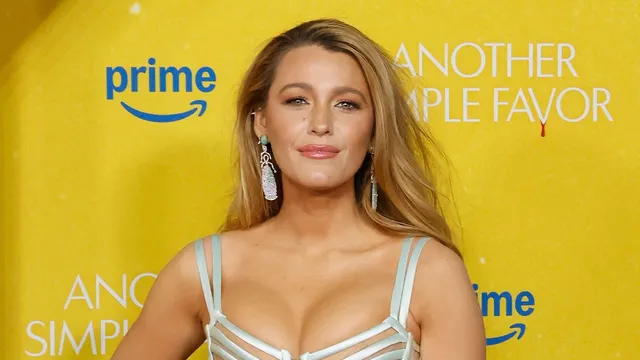
Blake Lively withdraws emotional distress claims against Justin Baldoni
2025-06-03 22:01- Blake Lively withdrew her emotional distress claims against Justin Baldoni amidst ongoing legal struggles.
- The decision came after Lively's allegations of sexual harassment and retaliation against Baldoni.
- This legal drama highlights complexities in celebrity lawsuits, set to continue in trial in March 2026.
Express your sentiment!
Insights
In an ongoing legal dispute, Blake Lively and Justin Baldoni have been embroiled in a contentious feud since late 2024. Lively originally initiated a lawsuit against Baldoni, claiming sexual harassment and retaliation while they worked on the film "It Ends With Us." This lawsuit followed a complaint she filed with the California Civil Rights Department. In recent developments, Lively's legal team announced her decision to withdraw claims of intentional and negligent infliction of emotional distress against Baldoni. However, the withdrawal was marked by disputes over whether it would be with or without prejudice, which has implications for future litigation. Baldoni's legal representatives argued that allowing Lively to withdraw claims without prejudice would give her the opportunity to refile them later, complicating the case. Lively's attorneys contended this action was a routine part of trial preparation and characterized Baldoni's counter-moves as strategic maneuvers aimed at garnering public attention. Notably, this situation aligns with broader dynamics within celebrity culture, where public and private conflicts often intertwine. Despite withdrawing the emotional distress claims, Lively is still pursuing other allegations, including sexual harassment and retaliation, alongside substantial claims for compensatory damages. Legal disagreements over the necessity of disclosing medical records related to her distress have also persisted, leading to a contentious courtroom atmosphere. With a trial set for March 2026, the stakes remain high for both parties as they prepare to present their cases before a New York court. As the litigation unfolds, discussions continue regarding the related allegations and the implications of the ongoing legal skirmish for both Lively and Baldoni’s careers. The dual lawsuits and multiple claims indicate a complex scenario where personal grievances are publicly aired, raising questions about accountability and the impact of such disputes on the individuals involved and the industry at large.
Contexts
Emotional distress claims in celebrity lawsuits have become a prevalent theme in recent legal battles involving public figures. These claims often arise when a celebrity alleges that their emotional wellbeing has been severely affected by the actions of others, which can include defamation, invasion of privacy, or other tortious conduct. With the increasing media scrutiny and public interest in the lives of celebrities, the legal framework surrounding emotional distress claims has evolved to accommodate the unique challenges these individuals face. Courts typically require a showing of severe emotional distress, and celebrities need to provide compelling evidence illustrating the extent of their suffering to succeed in these claims. The legal standard for establishing emotional distress varies by jurisdiction, but many courts consider the severity and the outrageousness of the defendant's conduct as critical factors. Public figures, however, must navigate additional hurdles due to the First Amendment, which protects freedom of speech. This protection often limits the extent of liability for the media and other entities that report on celebrities, complicating emotional distress claims. For instance, when a celebrity claims emotional distress resulting from false statements or media portrayal, they may need to prove actual malice—showing that the reporting was made with knowledge of its falsity or with reckless disregard for the truth. In recent high-profile cases, celebrities have pursued emotional distress claims not only for reputational damage but also for the personal toll that public scrutiny can impose. For example, lawsuits filed by high-profile individuals have illustrated the intense emotional impact of invasive media practices, such as paparazzi harassment or unauthorized disclosures of personal information. Such claims are aimed at not only compensating the emotional suffering but also at setting a precedent for the protection of personal privacy and integrity in the public eye. The outcome of these lawsuits can influence social attitudes toward celebrity culture and the responsibilities of media outlets in their portrayal of public figures. The growing discourse surrounding emotional distress claims reflects broader societal concerns about mental health and personal well-being. As public awareness of mental health issues increases, the legal system continues to adapt to recognize the validity of emotional suffering in celebrity contexts. This evolution signifies a shift towards acknowledging the rights of individuals, regardless of their public status, and emphasizes that emotional distress should be taken seriously in judicial proceedings. As these claims gain traction, the balance between protecting free speech and respecting personal privacy remains a complex and ongoing legal challenge.